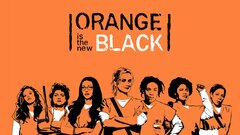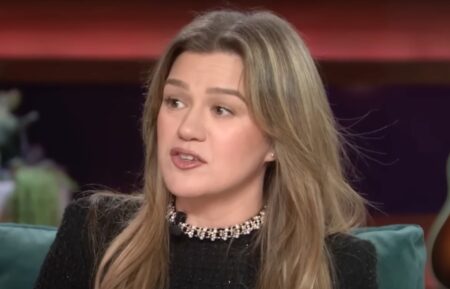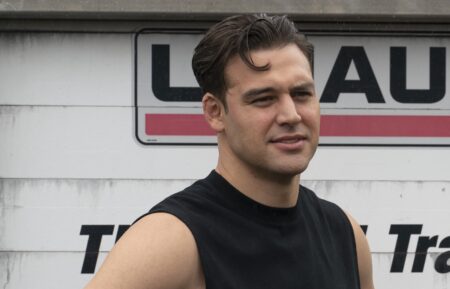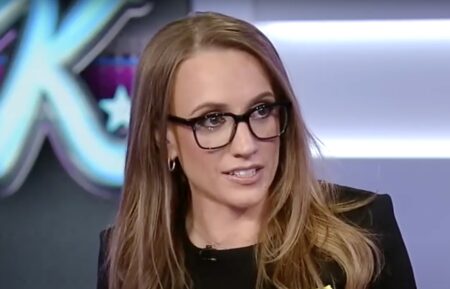Emmy Nominee Laverne Cox Reflects on Sophia’s ‘Orange Is the New Black’ Ending
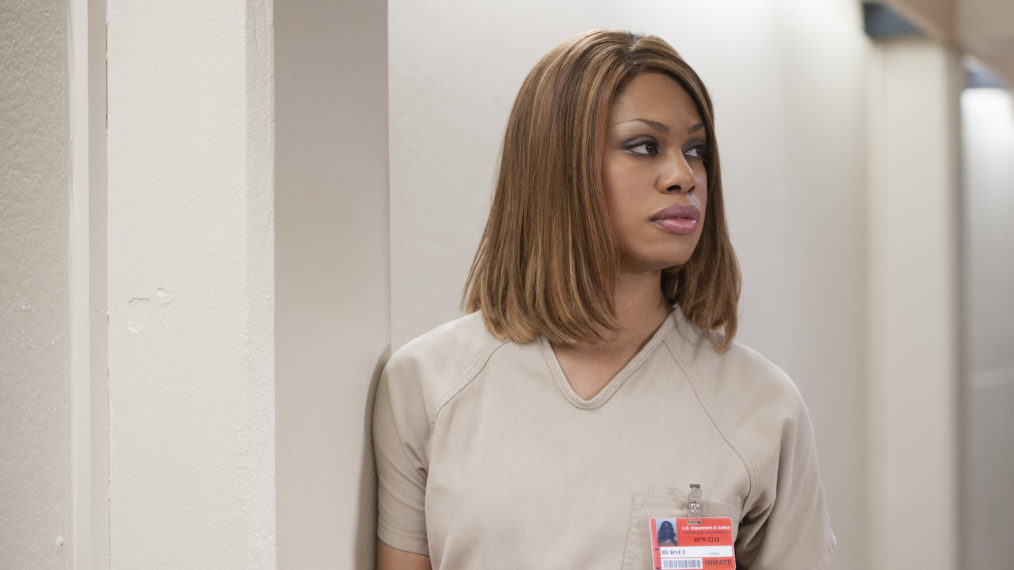
Emmys
It’s a month after the 2020 Emmy nominations were unveiled, and Laverne Cox‘s reaction to her nod for Outstanding Guest Actress in a Drama Series (for her return as Sophia Burset, who was in prison for credit card fraud and was released, in Orange Is the New Black‘s final season) still makes her laugh.
Cox announced the nominees alongside Leslie Jones, Tatiana Maslany, and Josh Gad on July 28, and when Jones told her she’d been recognized, she didn’t quite believe her. “Oh my God, I feel so embarrassed by that,” Cox admits to TV Insider. “I watched it back. I went into some sort of fugue state or something. I honestly can’t figure out what was going on with me in the moment.”
“When I’ve gotten Emmy nominations before, I was always in private so I could process it by myself,” she continues, adding it was a bit of “I’m not going to fall for it” and “oh, she’s joking,” then, “is she serious?”
The Emmys are virtual this year, and while Cox doesn’t know what to expect from the event, “TV is really, really good this year,” she says. “There’s some amazing television — so many shows that aren’t recognized, which is a shame — so I’m really excited we get to celebrate that with an Emmys ceremony this year.”
Here, Cox reflects on Orange Is the New Black and Sophia’s journey.
How does it feel to have your work on Orange Is the New Black not only recognized, but done so this way for the fourth time and have it be the only nod for the final season?
It feels wonderful. It feels glorious. It’s deeply humbling. This year, I thought a lot about the amazing actors on our show who never got recognition like this. I think part of my initial reaction was, “Oh no, people are going to be like, ‘Oh, not her again,'” but I really think about all the incredible actors in our show.
[On Monday], I was thinking about the first time we went to the SAG Awards when we were nominated in 2015, and there were 35 of us. I was still living in New York, and most of the cast is from New York and most of us were working actors who had our “survival jobs” still, our restaurant gigs, particularly that first season, and we were doing our one-off Law & Orders here and there and a lot of theater. I felt like we were these misfits who had somehow got invited to the party and we were in L.A. and then we won.
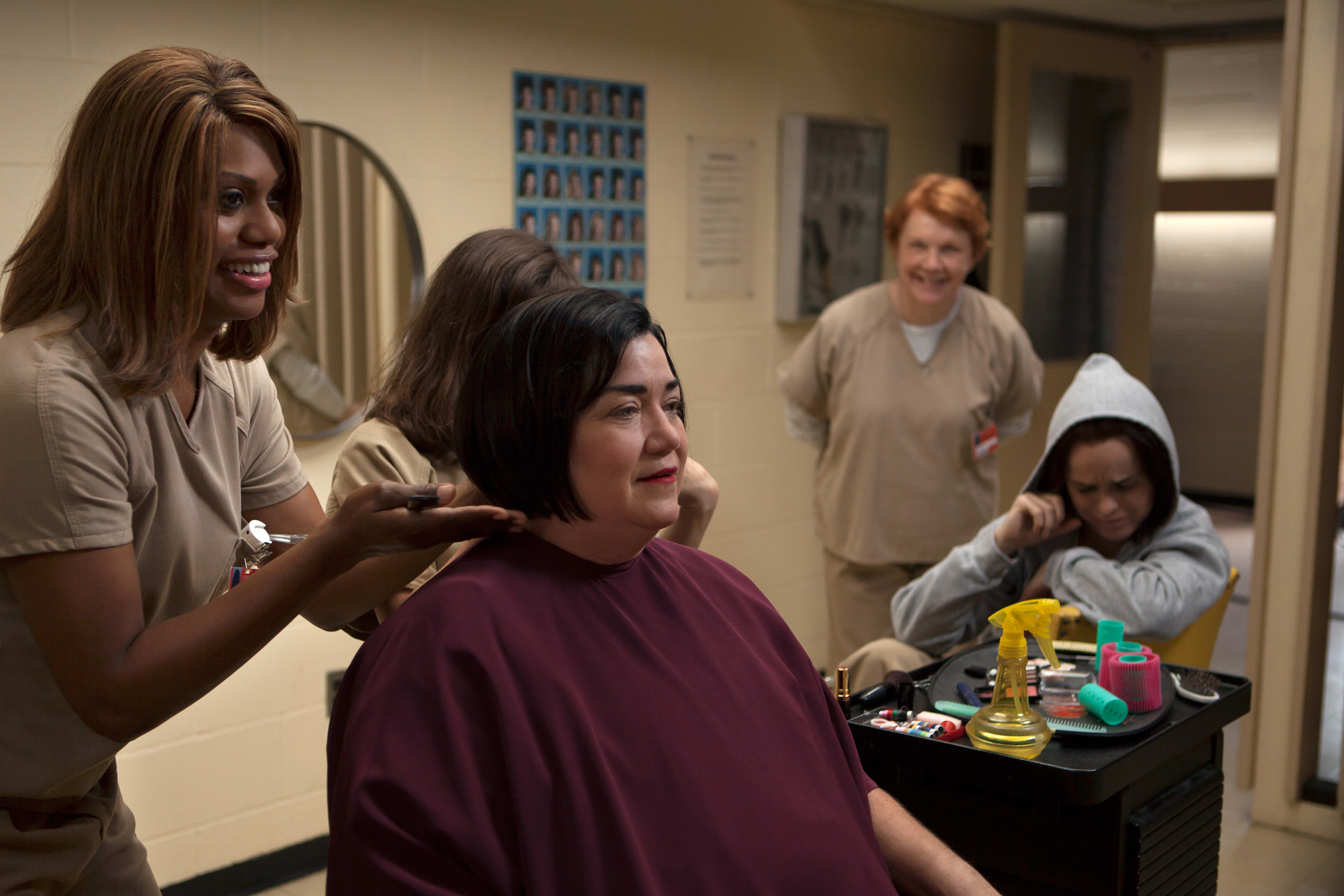
(JoJo Whilden/Netflix)
I was specifically thinking about Lea DeLaria, and Lea is so hard-ass and badass and she doesn’t give a f**k and she was in tears. Lea DeLaria is a living legend. She’s a trailblazer for lesbian actors, comedians, performers. She’s an amazing singer. She’s been in this business for 30+ years, working and hustling but not really getting recognition, and so I think about us as an ensemble, us all together, particularly at the SAG Awards. And for me, for a show that is such an ensemble, I always want to remind people of that, of the amazing, incredible actors on our show who don’t get singled out but who are integral and make up our show and make our show so special.
When we saw you in the final season, Sophia was living probably her best life possible after getting out of prison: the hair salon, looking forward … What did it mean to you for your only appearance in the season to showcase Sophia like that? Did you know that would be the case when you initially got the call to return?
I did not know what they were going to do, and I read it and I cried and I walked into the salon and I remember getting goosebumps when I actually saw the salon on the day and I was like, “Oh my God, this is so beautiful.” I’d lived with this woman for seven years and been to hell and back in prison with Sophia, and so it was beautiful that she got this ending.
I thought, what can it mean for audiences to see this and for a Black trans woman who’s formerly incarcerated to get out of prison and win? We need to see that. The trans people in real life need to see it. Non-trans people in real life need to see that. I always think about the first time we saw a Black president was on television, 24 and probably other shows, before it happened in real life. I think sometimes, if we can see it onscreen, then we can begin to imagine it. That’s what Sophia’s evolution and her ending on Orange Is the New Black means for me.
And I liked seeing the contrast to Piper as you and your character take command of the scenes because of the differences of where the two characters are when it comes to being out of prison: Sophia’s reaction to Piper when they first run into each other with her “you look … like the last time” and reminding her they can do whatever they want now they’re out of prison.
What was so beautiful about doing those scenes with Taylor [Schilling] as well was that my favorite first scene ever in the series in 2012, it was a cafeteria scene, but it was basically a scene with me and Taylor. It felt lovely to begin the series with Taylor and to end it with her as well and just to sit with her that day and catch up. We’ve become friends over the years, and I love her, I miss her.
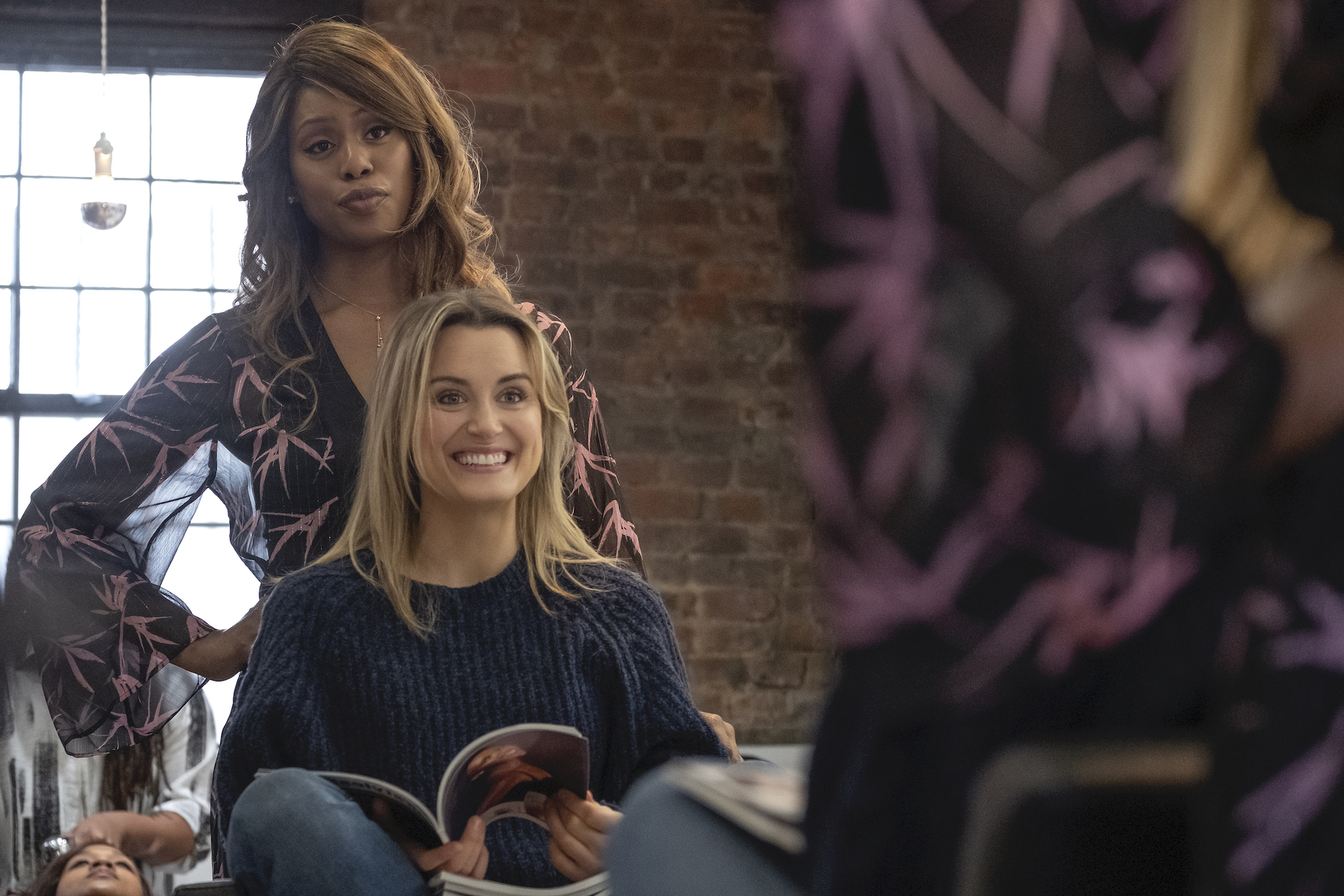
(JoJo Whilden/Netflix)
There’s so many people from our cast that I just am in love with as friends and who are just amazing people who have changed my life and brightened my life. Shout out to Orange alums, Uzo Aduba and Samira Wiley, who are also nominated for Emmys this year for other projects [Mrs. America and The Handmaid’s Tale, respectively], which is so inspiring and so amazing. Everyone’s doing amazing things. I’m just proud of the whole cast and ensemble and I love Taylor. It was really special getting to end the series with her.
Do you think Sophia’s trajectory would have continued in the same way from after we saw her? I’d like to think she continued to be successful and happy…
I hope so. Hopefully all of her messiness is behind her. The reason why Sophia was in prison was to fund her transition. It wasn’t like she was a career criminal. Because of the money she got from the settlement, she was able to continue her life and provide for her son and I think she’s going to be on the straight and narrow, if you will, for sure.
With Orange Is the New Black complete, let’s look back on Sophia’s journey. What moments stand out to you?
I have three moments in my career as an actress that were just the most amazing, and getting to work with Jodie Foster is in that top three. It was not just her, but it was that whole backstory episode, and this is Episode 3 of Season 1, when we see Sophia’s backstory. Getting to work with Jodie Foster [who directed the episode], getting to work with Tanya Wright, who plays Crystal, my wife, and that scene when I dress as a woman for the first time for Crystal stands out for me.
I as an actor had just dreamed about having a moment with another actor onscreen like that that was so intimate and so raw. You prepare, you prepare, you prepare, but then you’re in the moment and the other actor does something. Crystal was giving me so much and then Jodie came and whispered something in my ear and just something happened in the moment that just felt so magical and so, for me as an actor, it’s what I dream about, having something happen in the moment that makes me understand acting better, makes me understand humanity better.
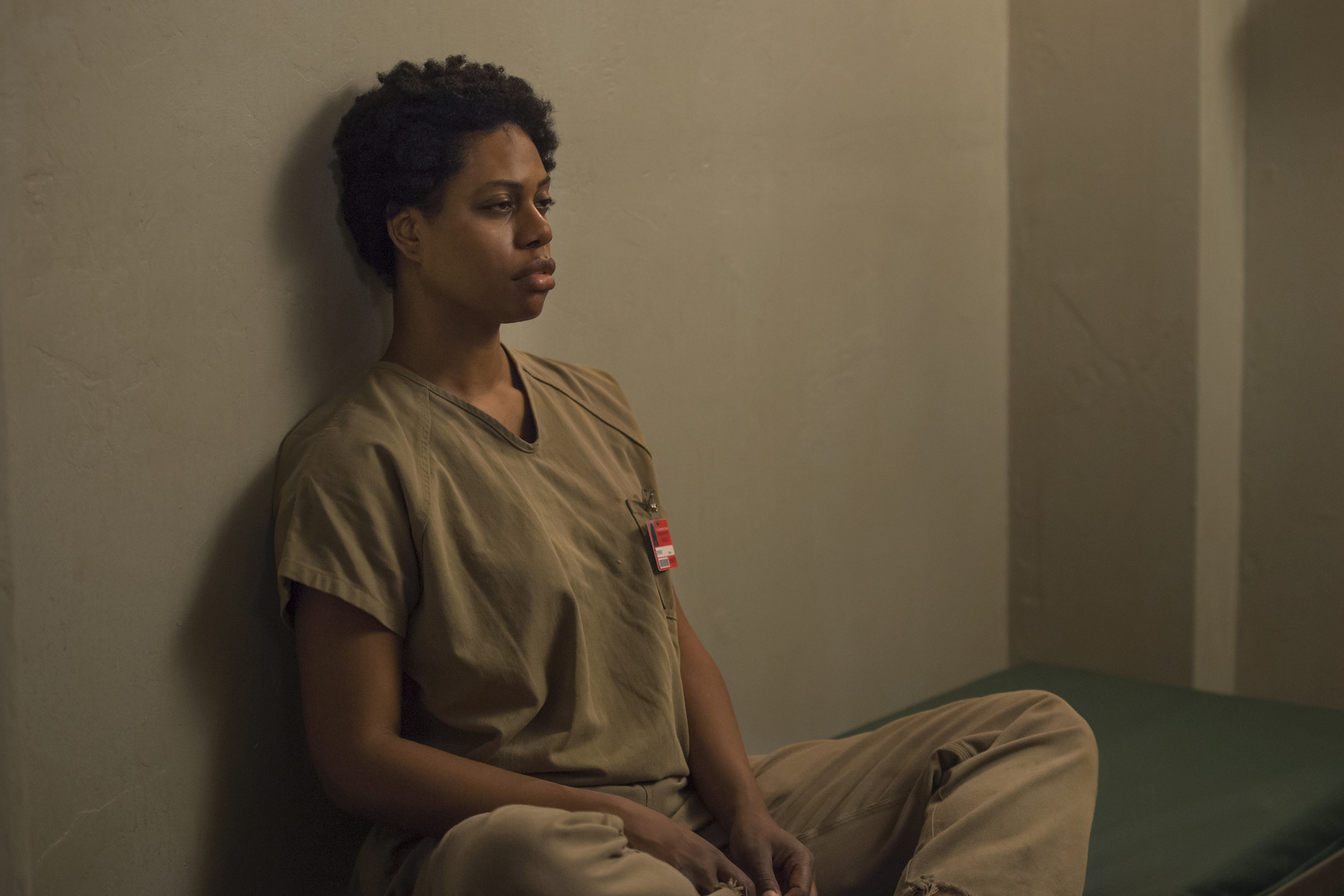
(JoJo Whilden/Netflix)
Season 4, when Sophia’s in the SHU, that whole season was really exciting for me because I had to prepare differently. It was almost like Sophia was a whole other person because of the effects of solitary on the human psyche. I’ve thought about this often being in quarantine because I’m taking quarantine seriously and I live alone. “Is this kind of like being in solitary?” It’s not, because I’m talking to you now, because I can leave my home with a mask on. It’s not the same at all.
Is there a line of dialogue that stands out?
It’s so funny that after all these years, it was the second episode of the series. I was with Danielle [Brooks] in the salon and Piper comes in and asks me to cut her hair for free and she says “please,” and I say, “Please is for commissary hoes and Oliver Twist.” It’s one of my favorite lines, still, and that became the way I got into the way Sophia speaks. That phrase stayed with me through all seven seasons. When I would come back to Sophia, I would repeat that phrase over and over again and get myself into Sophia’s cadence and her accent.
What are you hoping people — old and new fans alike, thanks to the streaming nature of Netflix — take away from Orange Is the New Black as a whole and also from Sophia’s story?
Jenji Kohan, it was her incredible vision based on Piper Kerman’s incredible book. Really for the first time, incarcerated women, incarcerated women of color specifically, but women of all races, of all sizes, shapes, sexualities, gender identities, were humanized in a way that we’ve never seen before on television. That is remarkable. Working class women, we’ve seen more working class stories on television, but I think we can still see more of those.
The diversity conversation, too. The very first season, most of the crew was women behind the scenes, and it just made sense and it wasn’t a thing. It was just the way it was. There were just women everywhere. The diversity conversation on screen, which is obvious, but what was happening in the crew and behind the scenes, is also something that was a model for how we can be doing diversity behind the camera. I said this for years. We’ve been doing it and Shonda Rhimes has been doing it for a really long time, having diverse writers rooms, having diverse crews. It’s possible. You can do it.
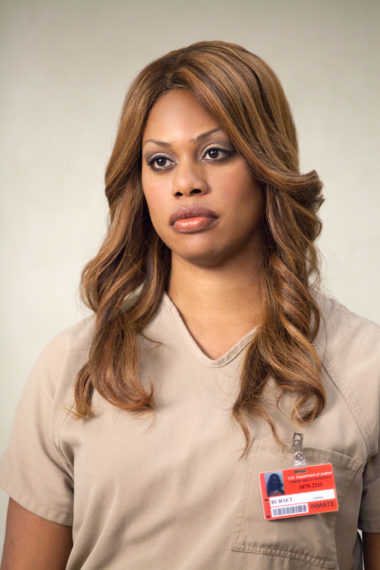
(K.C. Bailey/Netflix)
I think too when Orange premiered, there were no trans actors with recurring roles on television, I was the only one. And then the next year, there were a few more with Transparent and I think last count GLAAD did there were 25+ trans actors with recurring roles on television and non-binary actors, so Orange really blazed a trailer for transgender characters being played by trans people, and because of Orange Is the New Black, we had a trans person on the cover of Time Magazine for the first time, an openly trans person nominated for an Emmy for the first time. All of these amazing glass ceilings were broken because of Jenji Kohan’s vision in Orange Is the New Black, and that’s something to be celebrated.
Hopefully we’ll be able to look back on that and say this is the moment that changed everything. Hopefully there will be change. Time will tell.
Orange Is the New Black, Streaming Now, Netflix
From TV Guide Magazine
How Hulu's 'Mid-Century Modern' Is a 'Golden Girls' for Our Times
Settle in for some older and bolder laughs with the BFFs of a certain age in the new comedy starring Nathan Lane, Matt Bomer, and Nathan Lee Graham. Read the story now on TV Insider.






